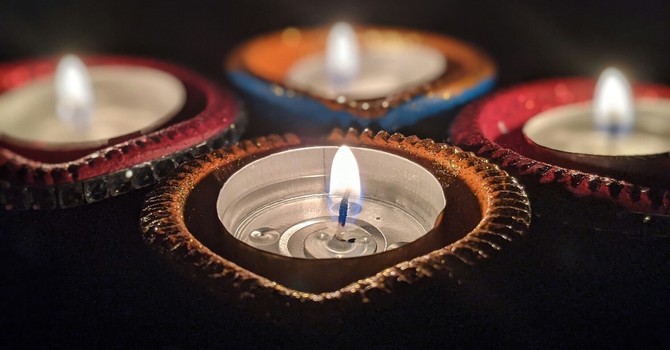
At some point, almost everyone has said:
“I’m feeling depressed.”
Sometimes it’s a passing comment — “Ugh, this weather is making me feel so depressed.”
Other times, it’s a quieter, more vulnerable admission: something doesn’t feel right inside.
But a lot of people ask:
“If I haven’t been diagnosed with depression, is it okay to describe what I’m feeling that way?”
“Is what I’m feeling really depression — or just sadness?”
To answer that, it helps to understand the difference between sadness and depression — and how each one might show up for you.
Sadness Is a Normal Human Emotion
Sadness is one of the most natural emotional responses we have. It’s a signal that something meaningful has been lost, changed, or is missing. It might show up after a tough day, a conflict with someone you care about, a disappointment, or even during a big life transition — like a move, a breakup, or leaving a job.
It’s Not Always About a Big Event
Sadness isn’t always triggered by something obvious or external. Sometimes it’s tied to more subtle or internal shifts, like:
- Hormonal changes (PMS, postpartum, perimenopause)
- Seasonal changes or lack of sunlight
- Chronic stress or burnout
- Unprocessed grief or trauma
- Illness or physical health issues
- The emotional impact of social media or comparisons
- Cultural pressure to “have it all together”
Even when life seems fine on paper, sadness can surface — and that doesn’t make it any less valid.
Sadness Usually Has Movement
Sadness can feel heavy, but it tends to come in waves. It often eases when you:
- Talk to someone who understands
- Cry, vent, or express what you're feeling
- Feel heard or supported
- Get rest or comfort
And sometimes, it lifts in more subtle ways — like spending time with someone who cheers you up, doing something enjoyable, taking a small action, or just letting time pass. You may still carry some of it, but sadness often shifts, making space for moments of relief, lightness, or connection.
There’s Usually a “Why” Behind Sadness
Sadness is often linked to something specific. You might not be able to name it right away — but with time or reflection, there's usually a reason beneath the surface.
Still, some people feel sad without knowing exactly why. That doesn’t mean it’s not real. It might be a sign that something needs care or attention, even if it hasn’t fully come into focus yet.
Depression Is More Than Just Feeling Sad
Sadness sometimes lingers. But depression is more than just sadness that lasts a long time. It tends to affect many parts of your life at once — your mood, energy, motivation, relationships, and even how you see yourself and the world.
Some signs that what you're feeling may be depression — not just sadness — may include:
- Feeling emotionally flat, empty, or numb
- Losing interest in things you used to enjoy
- Low energy, poor focus, or changes in sleep or appetite
- Feeling disconnected or like you're just going through the motions
- Persistent self-criticism, guilt, or hopelessness
- Thoughts like: “Nothing matters,” “I’m a burden,” or “Maybe people would be better off without me”
Depression isn’t always obvious. It doesn’t always involve constant sadness or tears. For many high-functioning adults, it can show up as quiet exhaustion, disconnection, or a sense that you’re not really living, just getting through.
If what you're feeling is making it harder to connect, function, or feel like yourself — even if you're still keeping up on the outside — it's okay to take it seriously. You don’t need to wait until you're falling apart to ask for support.
Can I Say I Feel Depressed, Even If It’s Not Clinical?
Yes. You can describe your emotional experience in the words that feel most accurate to you — even if you haven’t been diagnosed.
When someone says, “I feel depressed,” they’re often trying to name something real:
“I don’t feel like myself.”
“I’m low and disconnected, and nothing feels good right now.”
“I’m not okay, and I don’t know what this is.”
You don’t need a diagnosis to talk about what you’re feeling — or to seek support. Pain is valid even when it doesn’t have a label.
Therapy Can Help You Make Sense of What You’re Feeling
You don’t need a clear explanation to start therapy. Many people begin simply because something feels off, heavy, or hard to name — and they want help making sense of it.
While I can’t diagnose depression or any other condition, therapy can still be a space to explore what’s going on and what might help. Together, we can:
- Talk through what you're feeling — whether it sounds like sadness, depression, or something in between
- Look at how stress, burnout, or life changes may be affecting you
- Understand patterns in how you think and feel
- Build tools that support emotional resilience, connection, and clarity
You don’t need to meet a certain threshold to benefit from support. If something feels hard to carry on your own, that’s reason enough to reach out.
When It Makes Sense to Look at Medical Support
While therapy can be a valuable part of feeling better, sometimes additional support is needed. If your symptoms are persistent, severe, or interfering with daily life, it may be helpful to speak with a medical provider.
A medical provider can offer a formal diagnosis if needed and discuss treatment options, which may include medication. Depression is a medical condition, and seeking medical care is an important step in taking care of your overall health.
Therapy and medical treatment can work together to provide a more comprehensive approach to your well-being.
________________________________________
Crisis Support (If You Need It)
If you’re having thoughts of self-harm or suicide, help is available.
Suicide Crisis Helpline: Dial 988 (24/7) or visit 988.ca
Hope for Wellness Helpline (Indigenous peoples): 1-855-242-3310 (24/7) or visit hopeforwellness.ca
Emergency: Call 911 immediately if you or someone else is in danger.







